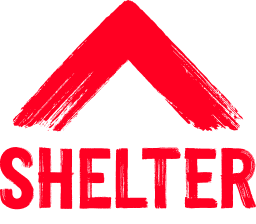Intro: Being a modern charity in a digital world
‘Definition of digital: Applying the culture, processes, business models & technologies of the internet era to respond to people’s raised expectations.’
Tom Loosemore, Partner at Public Digital

How can Shelter’s digital output help end the housing emergency? How can it give the most value to our clients and supporters, returning to them the gifts of time and empathy?
Shelter’s Digital Framework, in these pages, defines how we need to work in the digital age if we hope to answer those two big questions.
'In collaboration with the Digital Advice team, our Services Product team has looked at how people struggle to apply online advice to their own situation and how we can best assist.
'We’ve been designing products to enable people with less complex or less urgent needs to self-serve on our site in an interactive and tailored way. We want to foster confidence in users to understand advice on our pages, ensuring those with the most urgent needs can get in touch with Shelter’s helpline.'
Jane Kelly, Services Product Manager, Shelter
Growing expectations
Audiences in the digital age expect more. They want easier and faster ways to take actions and achieve goals, and they want innovative products and services for improving their lives.
Expectations have also risen for organisations. Technology and connectivity have changed every area of how we do business today. To be effective in the digital age, and to meet the challenge of Shelter’s strategy, we need to assume that every interaction with our audiences has a digital element.
For an organisation like Shelter, these factors pose a sizeable challenge. We’ll rise to meet it using four themes:
Devolved publishing - Shift responsibility for delivering regular digital work to the teams who are closest to Shelter’s audiences
Normalising digital into our working culture - Using principles, guidelines and standards to maintain a focus on our users' needs in everything we do
Scaling digital by aligning teams through our Communities of Practice rather than through centralised control, as CoPs are more pluralistic and inclusive
Consistently adapting our business models for the internet age through agile practices, a small-but-often approach, user focus and test & learn approaches
What would success look like?
These themes are helping to transform Shelter into an adaptive organisation – one that can meet the moment and respond to opportunities efficiently and effectively, leverage technologies to increase their impact, and bring together the right mix of skills to meet each opportunity, seamlessly.
The key is to embrace that uncertainty and equip ourselves to make good decisions. Using ‘small-but-often’, we reduce the risk of multi-year commitments and lower the threshold to use a test-and-learn approach, in an environment that makes it 'safe to fail', to then learn to do it right.
This is easy to say, but hard to do.
Standing still is not an option
To be operational in the digital age, and to meet the challenge of our organisational strategy, we need to assume every interaction with our audiences has a digital element. Which means our business models and processes must change to support that.
What you’ll find here
The framework explains our vision of what digital can mean for Shelter’s three-year and 10-year strategic aims. It covers the tools of best practice: the principles, standards, and guidelines we need to become an organisation able to react quickly to opportunities and changes beyond our walls.
It also explains how we’ve set ourselves up to plan and deliver digital products and services that are closely connected to our strategy, and the governance structure that drives this.
Related
Principles, guides, multi-level planning and the digital lifecycle: How our teams work
Learn the language: Our digital glossary demystifies a range of digital phrases and roles.
Contact us about the digital framework
Have a question or comment? Found a bug? Or maybe you’d like to contribute to the framework? Use our contact form to get in touch.
